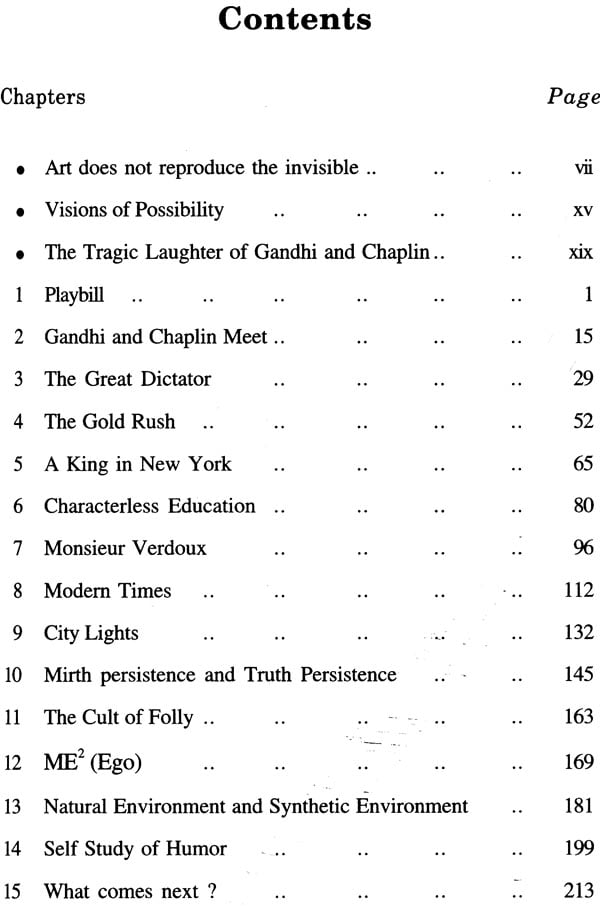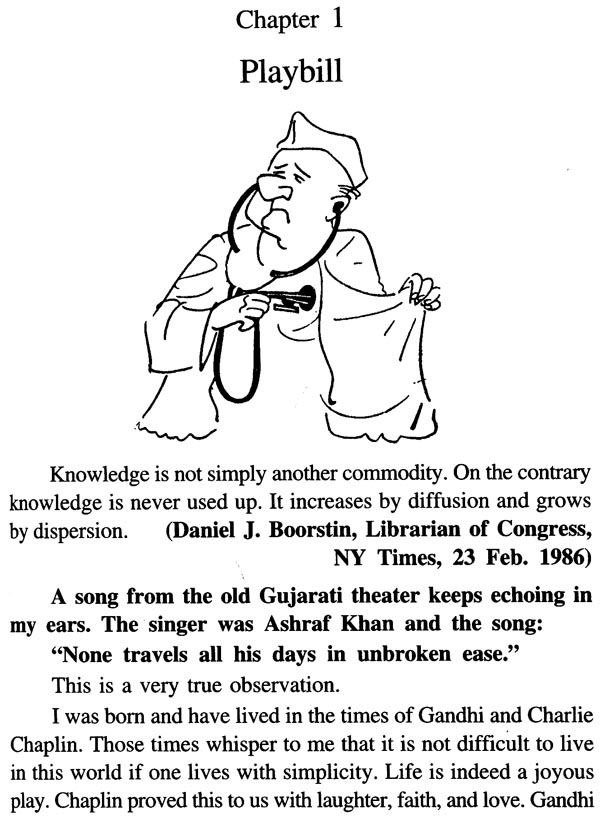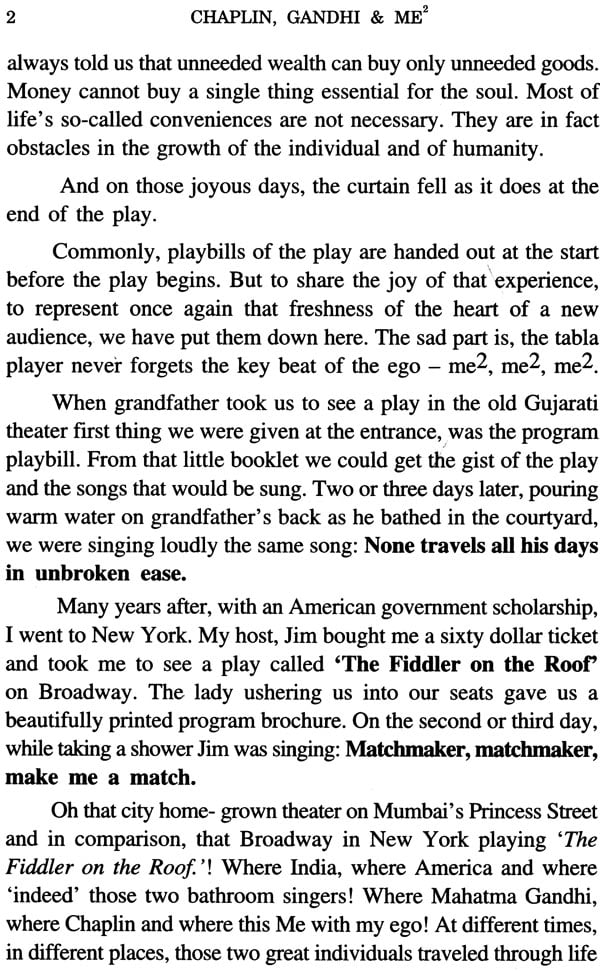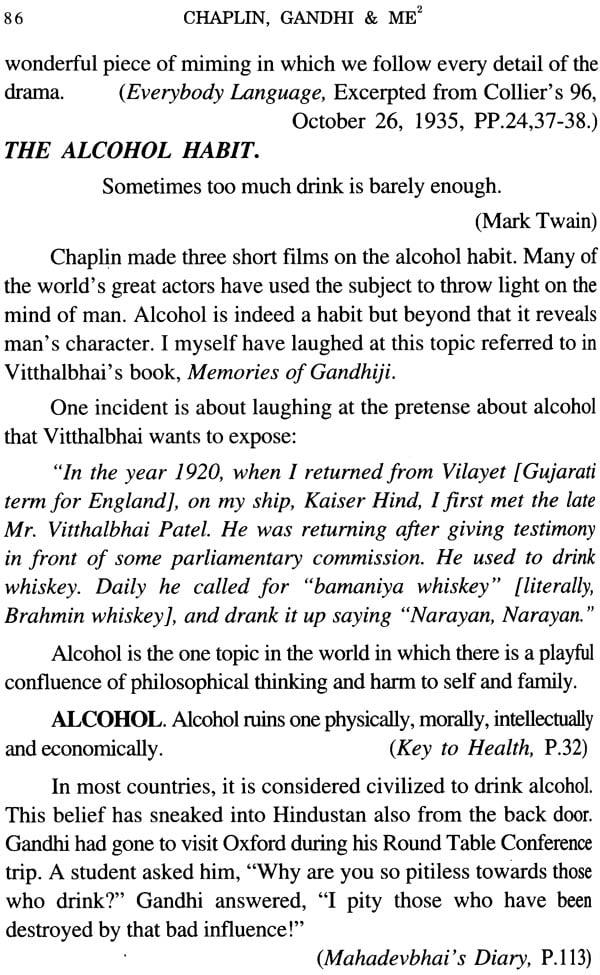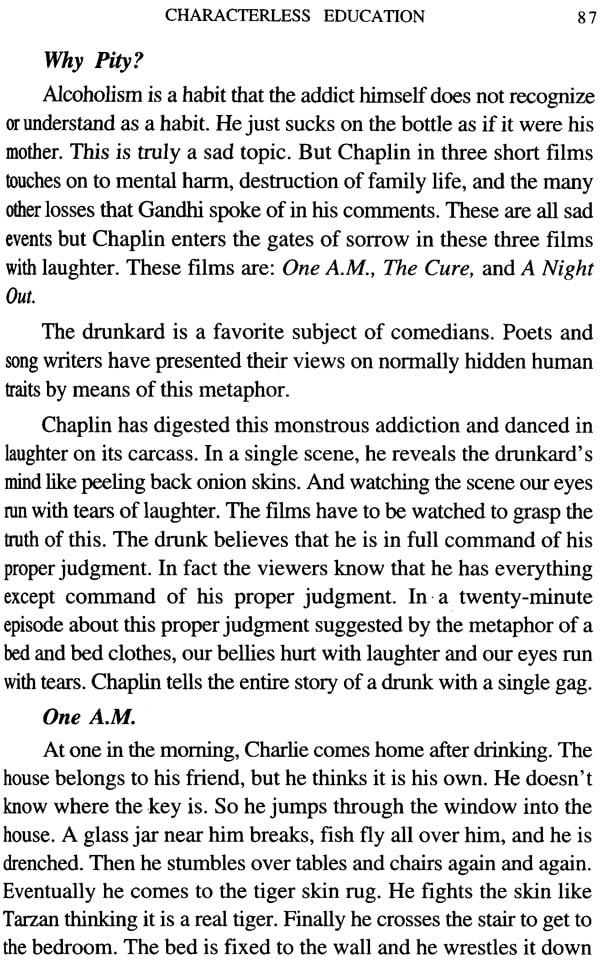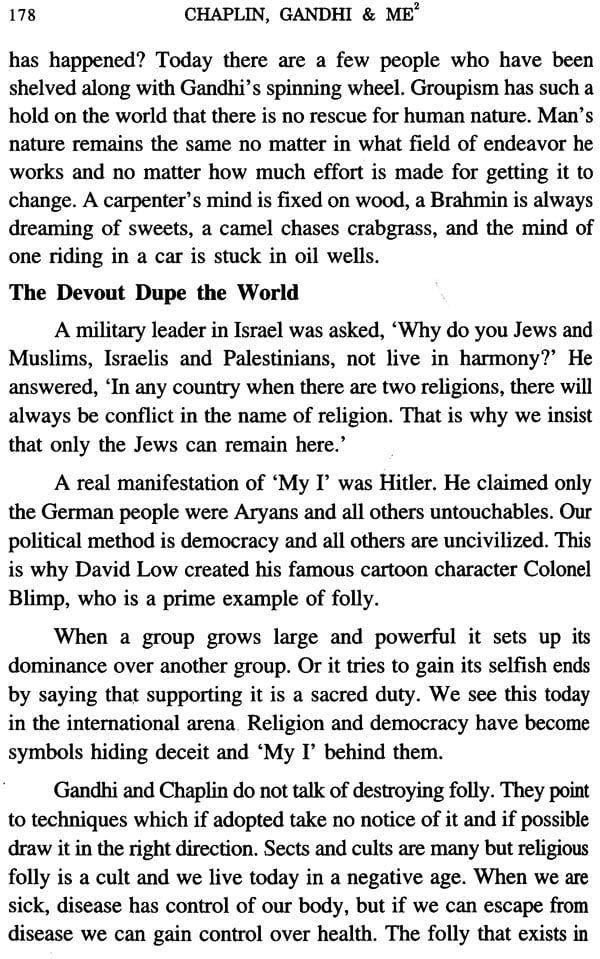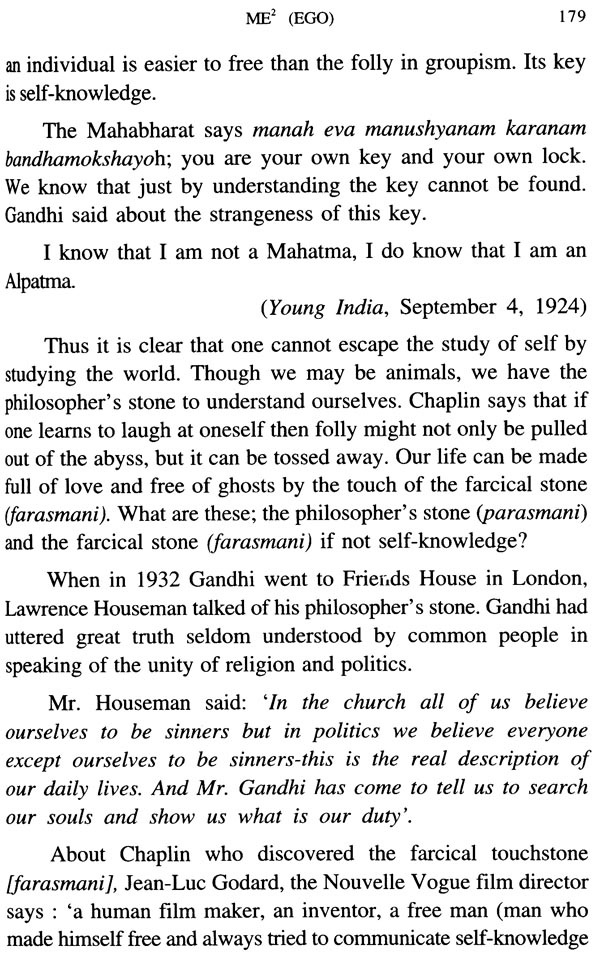
Chaplin, Gandhi & Me too
Book Specification
| Item Code: | NAP981 |
| Author: | Dr. Jayanti Patel |
| Publisher: | Bharatiya Vidya Bhavan |
| Language: | English |
| Edition: | 2015 |
| ISBN: | 9788172765255 |
| Pages: | 228 (32 B/W Illustrations) |
| Cover: | PAPERBACK |
| Other Details | 8.50 X 5.50 inch |
| Weight | 300 gm |
Book Description
Dr. Jayanti Kalidas Patel 'Ranglo' was born on 24-5-1924 at Ahmedabad. He obtained B.A. degree (University of Mumbai) in 1947, and was awarded Ph.D. degree in 1982 for his research on 'Natya-yoga' carried out under the guidance of ProL S. A. Upadhyaya, Director, Bhavan's Mungalal Goenka Institute of Post- Graduate Studies and Research, Mumbai.
He participated in the Quit India Movement in 1942. He played role of hero in many Gujarati plays presented by Rangmandal (Ahmedabad) and Indian National Theatre (Mumbai). He presented many Bhavai plays on All India Radio. He wrote many essays on satire in Gujarati journal 'Akhand Anand' for about ten years. In 1967, he was offered the J. F. Kennedy Scholarship, and extensively worked on the stage and art of cartoon in U.S.A, France, England and Germany.
Since 1984, he has been presenting plays under the banner of his theatre 'Inner Broadway' at Anand Ashram in New York State (U.S.A.). He had been significantly contributing to the fields of theatre, cartoon, yoga and art criticism, through Radio, TV. & other media. He married to Smt. Sharda in 1947, and have three children: Ms. Warsha, Ms. Nivedita and Mr. Nilesh.
The perception of both visionaries, Charles Chaplin as well as Gandhi reasserted their firm belief in the existence of a universal religion which did not believe in dogmatic watertight compartments and which moved away from delineating borders among various religious beliefs, resulting in an all-encompassing religion without a specific name, a religion which believed in Humanism above all. Hailing from diverse places, and separate religions both of them nevertheless held many common beliefs.
In the year 1942, Chaplin was asked why he had not acquired American citizenship to which he replied echoing Gandhi's thought "I have never had patriotism in that sense for any country, but I am a patriot to humanity as a whole."
Gandhi almost echoed this remark when he said "The conception of my patriotism is nothing if it is not always, in every case, without exception, consistent with the broadest good of humanity at large."
In Sanskrit "margastha" connotes one who has not lost sight of the goal.
It also implies the determination of self to work hard till the set goal is achieved. The soul is intact till there is desire left to achieve the assumed goal and irrespective of whether one finds the goal elusive throughout one's life, the efforts made on a continuous basis is what n I was thoroughly elated when I had the privilege of In two such personalities on 22nd September 1991 and my joy no bound.
Any ayurvedic practitioner would testify that pulse is the indicator of any person. In my case, pulse reading translates recognizing the pulse of the times which I manage to reproduce in the shape of cartoons and graphics which has been my forte in my creative life.
I am afraid, there has been a total dearth of attention on Such matters in my native Gujarat despite some brilliant creative efforts in this field e.g. Chakor's (Bansi Verma) whose efforts unfortunately have not been recognized to the full.
I dropped in at the eminent Stanford University on an impulse once and happened to call on Prof. Kurtmheller Voclmen. Listen to his conception of translation of various cultures, the idea of writ a book germinated which had been a conscious effort in response to the miserable state of the world today. The book was given a name taking into consideration the aforesaid thoughts I recognize the fact that self has personified into various for over centuries on mother earth. It personified into Gandhi, Chap and Einstein as well as in its negative avatar in Adolf Hitler.
Gandhi and Chaplin encountered the self ego during their lifetime in the shape of the British and senator Mcarthur in the course of the two world wars.
Self ego is the sublte theme of a film made by Chaplin his later years called A KING IN NEWYORK where he created a character called Rupert through whom he attacked and cock a snook at the crop of politicians around whom outdoing good to the world at large through the atom but end up making atom bomb manifestly towards usurping political power.
We are all aware of the nonviolent struggle of Gandhi against British. We are also aware of Chaplin's aversion and fight against what senator Mcarthur in America had set out to do.
Both of them are true artists of life. People who claim to pursue 'art for art's sake' are unable to make good their claim. There is a place for art in life apart from the Question-What is art? But art can only be a means to the end which we must all of us achieve. If however it becomes an end itself, it enslaves and degrades humanity.
**Book's Contents and Sample Pages**
